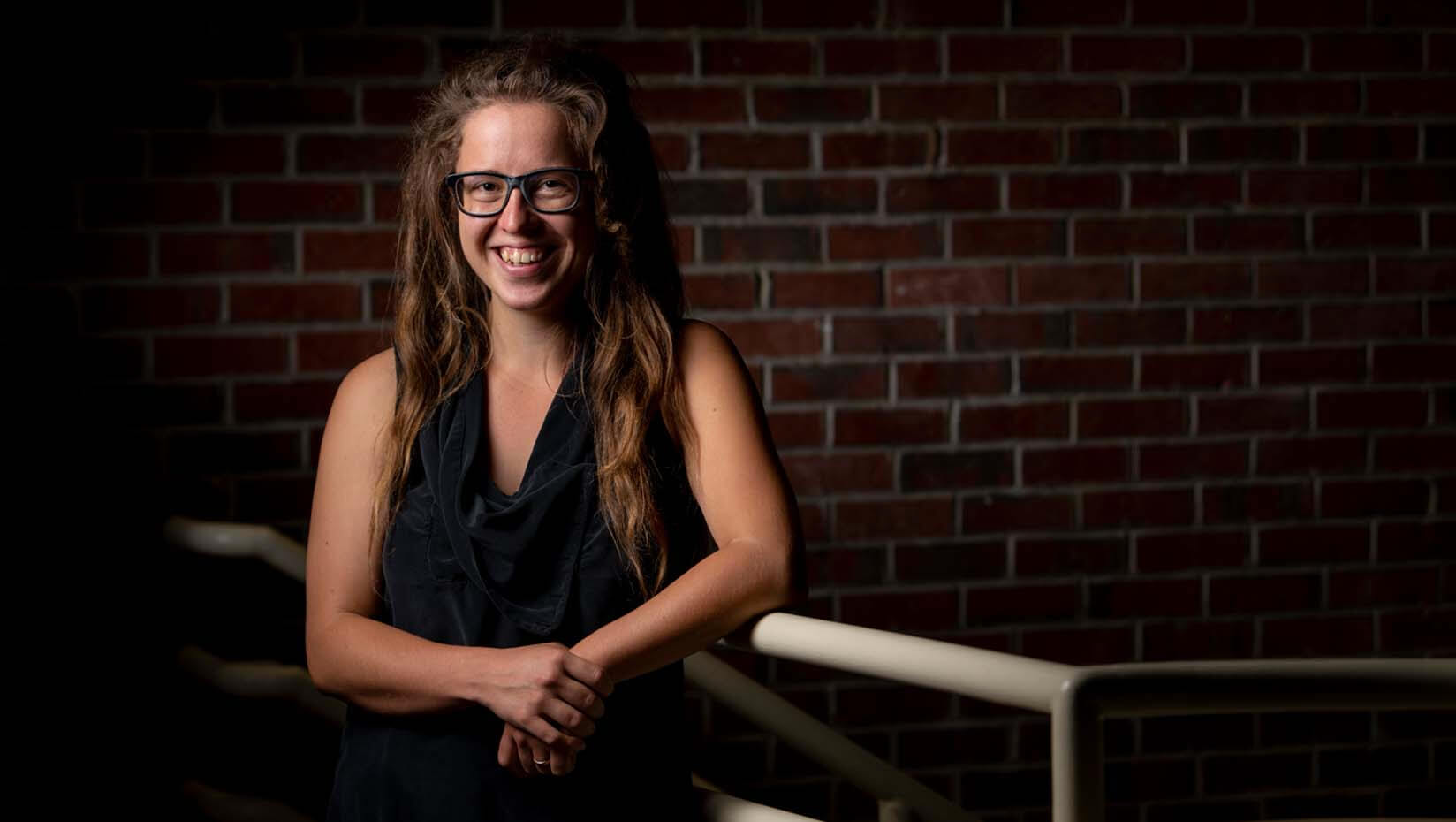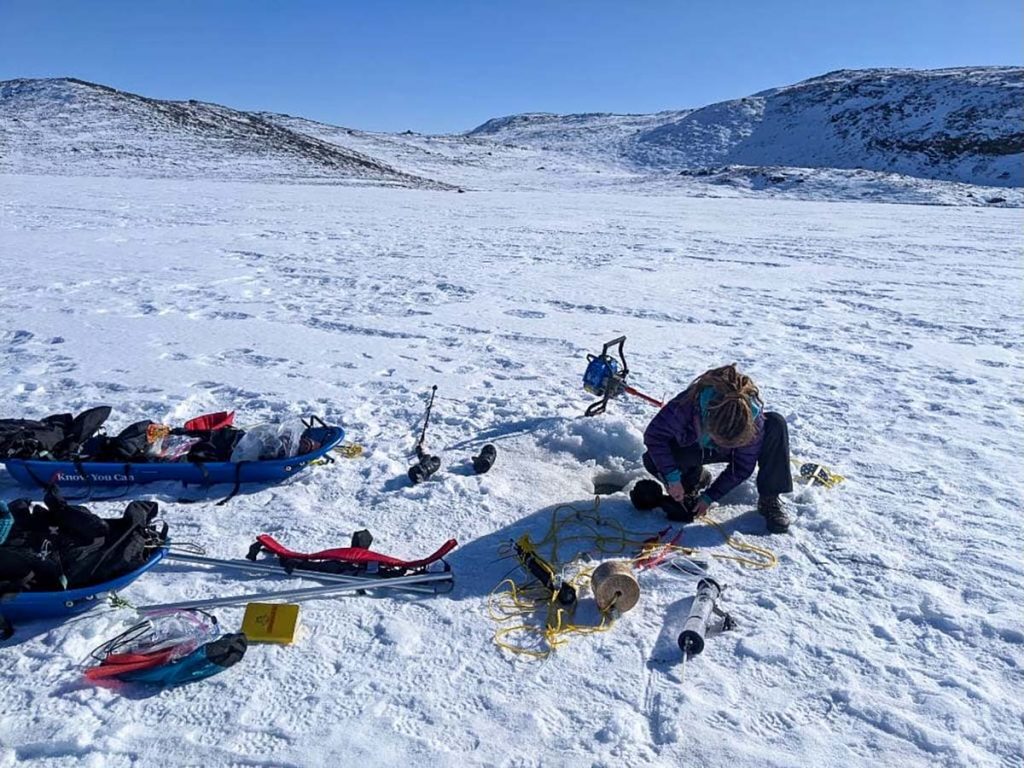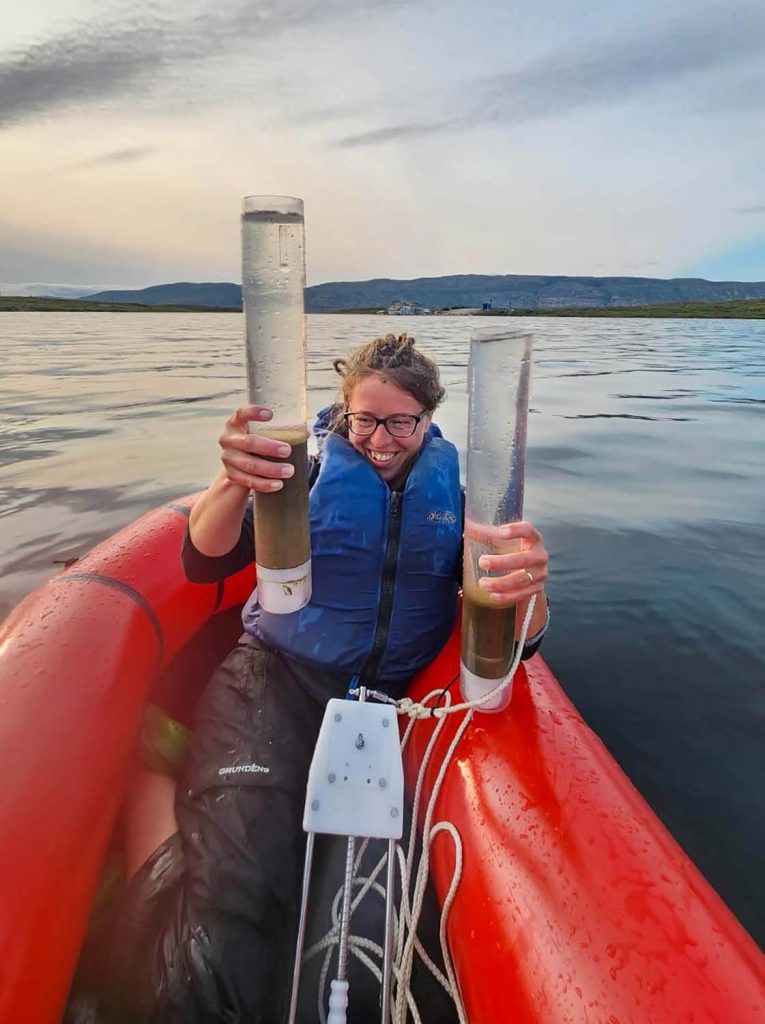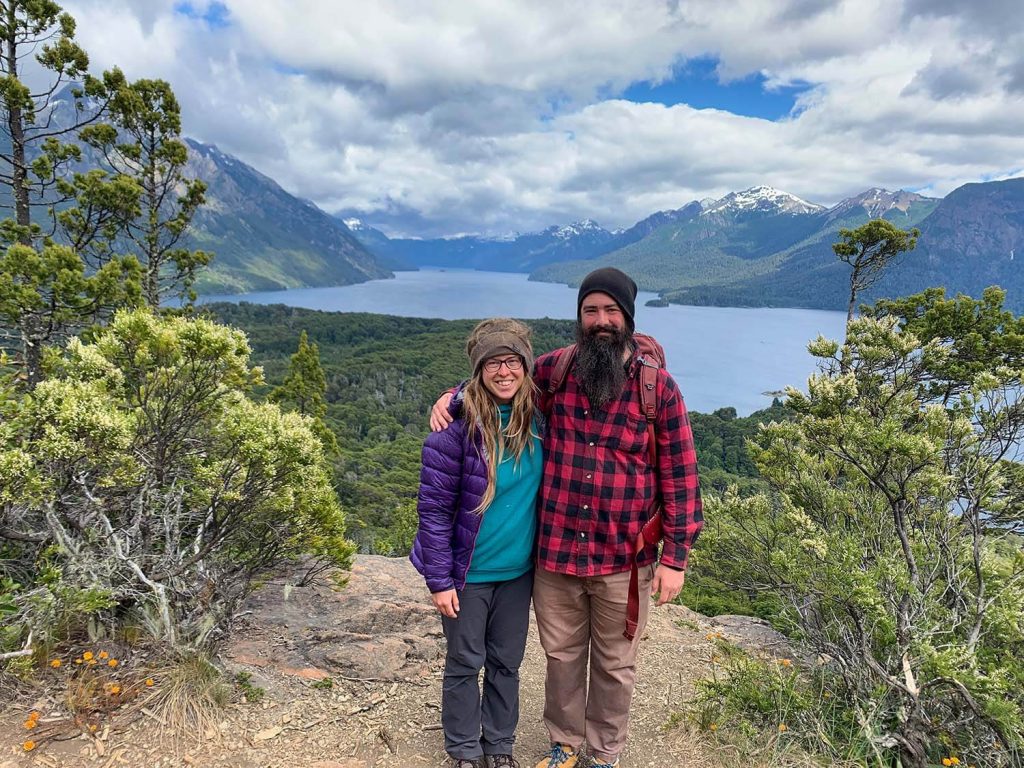
Vendy Hazuková: Diving deep into Arctic lake ecology
Someone who knows how to smile in subzero weather, Vendy Hazuková’s grit in the field has defined her as a graduate student at the University of Maine. Much of her time learning was outside of the classroom collecting samples in the Arctic, which ultimately led to a postdoctoral position in Northern Europe that she will start in the fall.
“I was recently counting how much time I spent doing field work — it’s over nine months, over the six years that I was here,” said Hazuková.
Students and faculty studying Arctic science complete summer fieldwork in Greenland, but her adviser, Jasmine Saros, said Hazuková has led research there as early as April when the season isn’t quite past winter. She hikes rough terrain in freezing weather and completes labor-intensive tasks, such as drilling holes into meter-thick ice to sample the water below. At times, the pursuit of raw data would just involve her and one other person.

“They carry all this equipment into the lakes, and then they are chipping away at ice,” said Saros, who paused with astonishment. “It’s extremely hard work, and she does it with a positive attitude.”
Following completion of her undergraduate studies in the Czech Republic and a master’s degree at John Carroll University in Ohio, Hazuková came to UMaine in 2018 as a Ph.D. candidate in environmental sciences. She could have graduated with a doctoral degree in four to five years, but Saros said Hazuková elected to join an Arctic graduate training program that extended her studies to six years.
Saros, a professor of quaternary paleoecology, advises three to eight students at a time and serves as a collaborator on their research, getting to know each student as a close colleague. Because she sometimes joins in field research, she becomes familiar with what her students are like outside of their studies — an unintentional side effect of traveling around the world with someone and sharing meals. Hazuková, she said, is a great cook.
“Vendy [Hazuková] always struck me as just incredibly bright, hardworking, motivated and as someone who is easy to talk to,” said Saros. “She really is an outstanding student, and an outstanding scientist and colleague.”

While at UMaine, Hazuková researched the presence of carbon dioxide in Arctic lakes, and her resulting dissertation centered on how global warming and new weather patterns induce ecological changes in the lakes. Two chapters of her work are published online through the Journal of Geophysical Research: Biogeosciences and Limnology and Oceanography Letters. She was able to work with and contribute to long-term data on Greenlandic lakes that Saros started collecting around a decade ago. Every year since Hazuková has been enrolled at UMaine, she said she would join Saros on Arctic research expeditions.
Data can be used for a range of studies, but Hazuková narrowed her investigation to how lakes are responding to seasonality changes — shorter, warmer winters — which affects lake ecosystems and the humans who rely on them for food. She found that earlier melt of lake ice and changing weather conditions are altering the thermal structure and oxygen concentrations in Arctic lakes.
Although her research area was focused farther north, it has implications that extend to Maine’s lakes, which continue to ice out earlier, causing the waters to be more unpredictable for ecosystems.
Hazuková also looked at how connectivity between lakes and waterways increases or decreases CO2 emissions. Depending on precipitation, connectivity encourages material to accumulate on land or flush into lakes. Material, such as twigs or soil, mineralize and emit CO2 when they filter into the water.
Research in Sweden
Building on her research with Saros in Greenland, Hazuková traveled to Sweden as part of the Limnology and Oceanography Research Exchange program, funded by the National Science Foundation. The program awards 30 or fewer graduate students the opportunity to establish international connections and participate in funded research projects of their choosing in one of seven participating countries.
While in Sweden, she worked with a network of collaborators to create detailed descriptions for watersheds of about 500 lakes in the Arctic by using elevation models and algorithms.
“We knew where the lakes were, but we didn’t know how big the area was from which the water would be coming into the lakes,” said Hazuková. “Now we have these drainage areas for each lake in the Arctic that had existing CO2 data. When people can work together and have similar goals, but different skills, you can really get something new done that’s going to be quite novel.”
The exchange program is student driven. As part of Hazuková’s application, she was required to preliminarily arrange an opportunity for a research project to complete during the program, which she found with Jan Karlsson of Umeå University in Sweden. There, she worked with Karlsson for three months and established the connection that led to her full-time, postdoctoral research position.
“We’ve worked up in the mountains, and it’s quite a lot of long hikes with heavy equipment, cold conditions, sometimes storms and sometimes snow, even in the summer,” said Karlsson. “She could just handle everything. She was just happy all the time.”

Karlsson said it’s very rare that openings are available to students who participate in these types of programs to return full time, but his lab had an opening and Hazuková landed in it. She and her husband, who completed his graduate-level education in English and philosophy, are preparing to move to Sweden in August. Since he accompanied her during the exchange program, they will already be acquainted with the area and know where they can find good Indian or Ethiopian food and which club hosts local punk rock bands.
She’s also familiar with frigid weather, not only because of her Arctic endeavors in research.
“The coldest temperatures that I’ve experienced were here in Maine,” said Hazuková. “Last year there was this polar vortex situation, and I think the temperatures were going down to minus 60 degrees Fahrenheit for a weekend.”
Contact: Ashley Yates; ashley.depew@maine.edu
